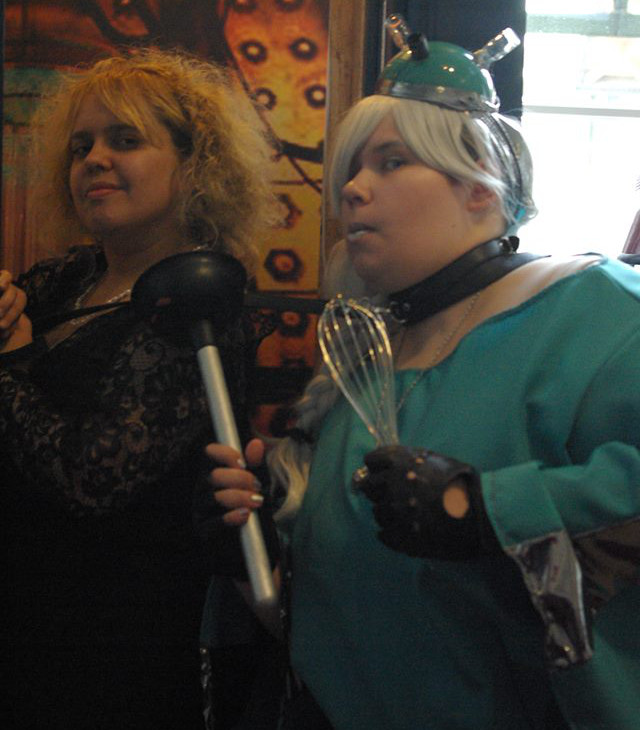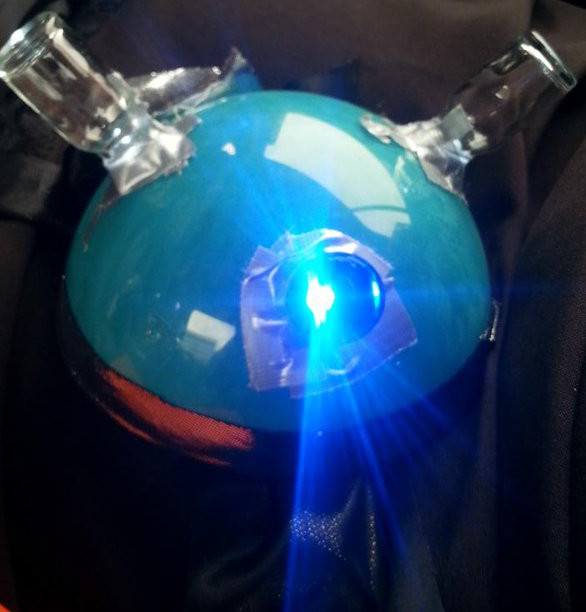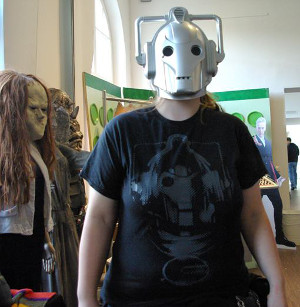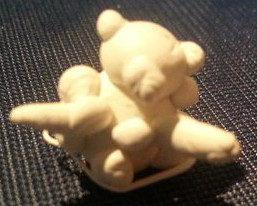Meh, I really wanted to participate in Ed’s Capturing History Challenge: Spooktacular, but I just don’t have a picture of all those places around here, whose stories are worth to be told.
And there are a lot of stories. From the witch trials in Penzlin, over tales of Klabautermänner or Mermaids in the Baltic Sea or the many lakes of Mecklenburg-Vorpommern, to the Petermännchen from Schwerin castle and the Oaks of Ivenack, up to many tales of White Women and Black Dogs/Poodles.
You might remember that I already talked about my Halloween experiences in Germany and my plans for last years Halloween – though I still haven’t written down the tales of that trip – so this year I decided to tell you a few of the tales that are said to have happened in my home town Jarmen – the name might sound familiar if you read A Song of Ice and Fire by the way. 😉
So I looked through the many books we own and found a copy of a myth collection called „Der Schatz von Meesiger – Sagen aus dem Kreis Demmin“ (The Treasure of Meesiger – Myths from the county Demmin) that was re-released a couple of years ago.
Even though the county Demmin doesn’t exist any more – thanks to the Kreisgebietsreform that split it apart – Jarmen itself is still a small town in the Vorpommern part of Mecklenburg-Vorpommern that is situated directly at the river Peene – commonly referred to as the Amazon River of the North – and has an interesting history by itself (we were Swedish for a while and we have a Griffin in our coat of arms).
So enjoy a little dive into the myths surrounding the place I call home. 🙂
The Devil is the real Deal
Years ago when the apartment building my family lives in wasn’t build yet a storehouse and stables for the stage coach stood in its place.
One night one of their coaches was filled with so many people that an old man had to sit with the postillion in the coach box. The two began talking and the old man turned the conversation towards belief. The postillion declared that he did not believe in anything, not even the Düwel (lower-German for Devil) himself. The old man then suddenly declared „Denn’n Düwel gifft dat“ (The Devil exists) and snatched the whip away from him. He cracked it loudly and the horses stopped in their tracks, all windows and doors of the coach opened and a smell of tinder and sulfur hung in the air and the old man was gone. The postillion now certainly changed his belief.
Two farmers who lived in the same area had a different meeting with the Devil. They made a deal with him to always have enough money as long as the Peene would have enough water. Then one summer the river dried out more and more and was nearly gone. The brothers, who had not thought of the deal in the times they faired well now remembered it when money no longer came into their pockets. They believed everything to be over and just became idle and melancholic, while waiting for the Devil. So one day he came to collect them and in the following year the water in the Peene flowed high again.
A White Woman in the Smithy
As the stage coaches weren’t the only business it is not surprising that there was a smithy in Jarmen as well.
One day the apprentice, who lived in the attic of the smithy came to his room and saw a lady all dressed in white standing on the stairs to his room. In his drunken state he thought her to be his master’s young wife and sent her a friendly greeting that she did not return. He turned around and believed to see her walk through a closed door and vanish, frightened he got up to his hay bed and did not find any sleep that night.
The next day he told his master about it and asked him for advice. He just told him to do „gor nix“ (nothing).
The next night when the twelfth hour came the woman returned and stood in the moonlight above the apprentice‘ bed until he woke up and rose up in fright to flee. The woman pushed him back down and told him he could free her, opening her garments to give him an incentive, but heading his master’s advice he did nothing.
After a moment she leaned back down and whispered to him:
„Tomorrow night go forth towards Demmin. Be at the first cross road at midnight. A coach with four white horses will drive up. Give each horse a „Pfennig“ (Penny/Cent) to eat and throw two more crosswise over the carriage with the words ‚Drive on in Peace'“
The frightened apprentice didn’t know what to do, so he asked for some time to think.
In the following night the White Woman appeared again at his bed and took off her garments without a word, her pale body shone in the moonlight. This view made the apprentice promise to be at the described place the next day.
As announced the coach arrived and he fed the horses the Pfennige and threw two more crosswise over the carriage. It opened and there sat the White Woman and smiled. A gust of wind got up and the translucent garment of the woman flew towards him, entangled him and tried to pull him into the carriage…
In his panic he called out „Drive on in Peace“ and the spook was gone.
As long as he’d been in his master’s service the apprentice never again saw his master’s young wife in the house.
A different tale
I hoped you liked this little look into the myths surrounding my home town and if this is something you’re interested in, let me know and I’ll see what other myths I can dig up. 🙂
If you want to read more spooky stories feel free to go over to DF.PP Entertainment for a collection of stories fitting for the occasion (the majority of them is in German though…). 🙂
I don’t know what this Halloween will bring for me and I’ll spent it with Black Kat, Anice and others from the Black Pack at the Burg Stargard at their Halloween feast, but we’ll see.
So, stay save in this spirit filled night and have Happy Halloween – or Samhain! 🙂
PoiSonPaiNter
(c) All three stories were taken, re-told and translated from the book „Der Schatz von Meesiger – Sagen aus dem Landkreis Demmin“, collected by Karl Schlösser, first published as „Der Schatz von Meesiger – Sagen aus dem Großkreis Demmin“ in 1994 by the Baltic-Verlagsagentur and re-released in 2001, where they can be found as „Der Teufel höchstselbst“, „Der Pakt“ and „Die weiße Dame“







